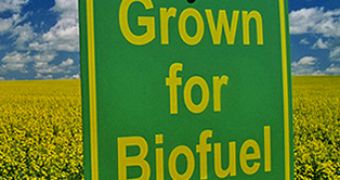Researchers with the University of California, Davis say that, as surprising as this may sound, biofuels can potentially cause more damage to the environment than fossil fuels do.
In a new paper in the journal Environmental Research Letters, the scientists detail that, according to their investigations into the matter at hand, this is bound to happen if deforestation rates get out of hand in order to provide for the biofuels industry.
More precisely, they argue that, should millions of hectares of Brazilian forests be cleared and turned into palm oil plantations intended either for food or for biofuels, carbon dioxide emissions would go through the roof and both human society and the natural world would be severely hit.
To investigate how the deforestation for biofuels will affect the environment, the researchers pieced together three scenarios concerning potential developments in Brazil's Pará region.
The scientists decided that their investigation should focus on Brazil due to the fact that, over the past few years, this country has taken a keen interest in producing biodiesel.
Each of the scenarios created as part of this study boiled down to converting about 22.5 million hectares of land into palm oil plantations and thus producing 29 billion gallons of biodiesel.
The only thing that the researchers toyed with was how much of the land turned into palm oil plantations was cleared specifically for this purpose, and how much of it had already been cleared and was now merely repurposed.
“In the first scenario, only a third of plantations occurred on previously deforested land with the rest occurring on conservation and indigenous areas; in the second and third scenarios, a larger proportion of plantations (46% and 78%, respectively) occurred on previously deforested land,” Click Green explains.
“In the first and second scenarios, where there was little or no enforcement, the land use change resulted in 84 and 60 grams of CO2 emitted per megajoule (gCO2e/MJ), respectively – the European Commission has rated the carbon intensity of diesel as 83.8 gCO2e/MJ,” the same source details.
This means that, if the people in the palm oil industry choose to clear forests in order to set up new plantations, the total amount of carbon emissions linked to biodiesel will equal, maybe even surpass that of fossil fuels. The best option is to use lands that have already been cleared, the researchers stress.
“If the Brazilian government is to promote policies that encourage land conversion next to environmentally and ecologically sensitive areas, then they should also weigh in on the consequences associated with the lack of enforcement if they are to avoid irreversible damage to the environment,” says study co-author Dr. Sonia Yeh.

 14 DAY TRIAL //
14 DAY TRIAL //